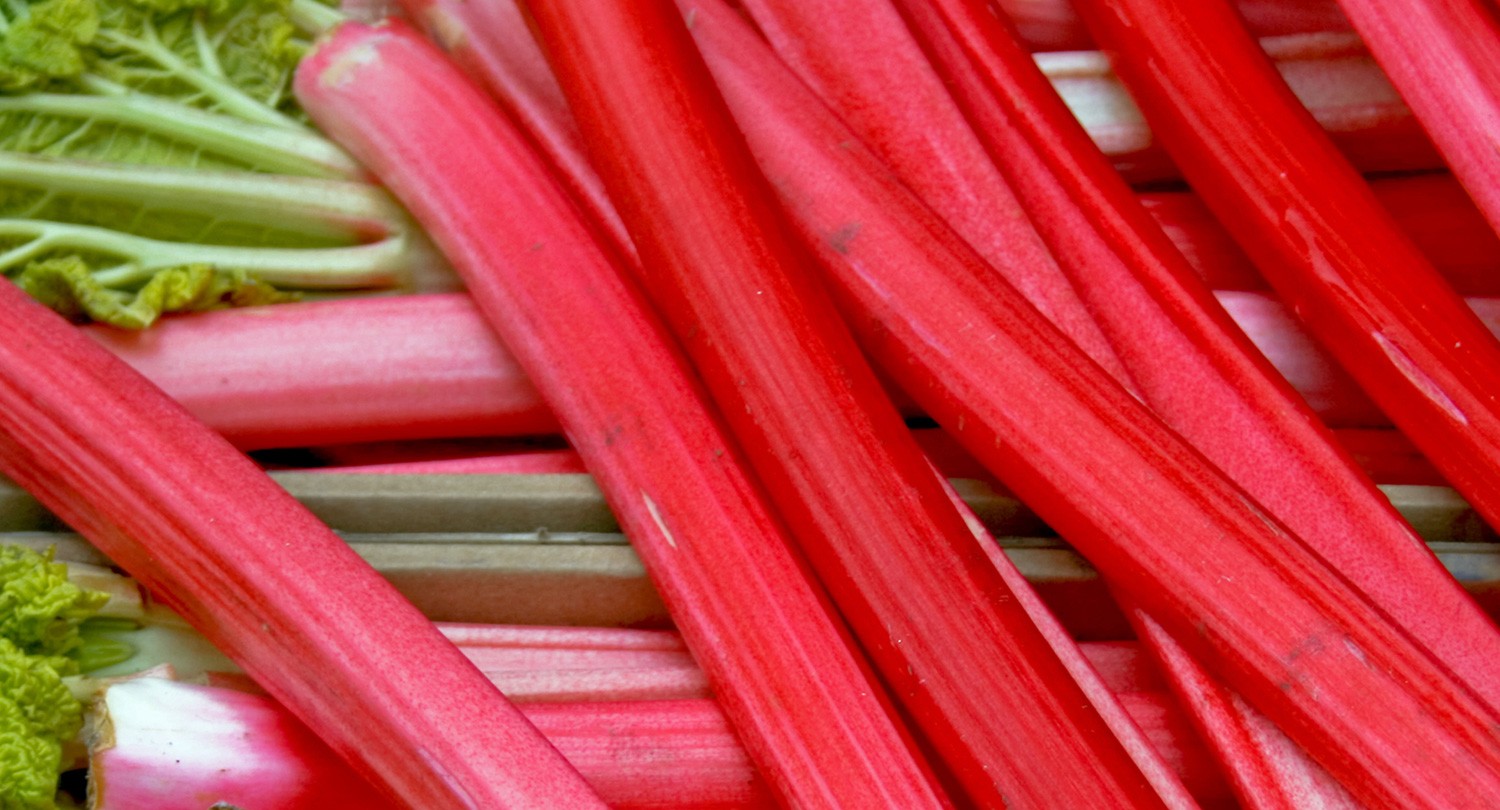
Rhubarb and Health
One sure sign of spring is the perennial vegetable rhubarb, also known as Rheum rhabarbarum. Yes rhubarb’s classification as a vegetable may be a surprise, because we typically use it like a fruit in jams, muffins, pies and cakes. Only eat the long stalks of the rhubarb because the dark green leaves are poisonous! Did you know rhubarb stalks come in more colours? Other varieties include pink and green. Rhubarb is easy to grow, but needs cool weather to thrive. However, it can be grown year round in an ideal environment like a greenhouse. Its tart flavour complements other foods like the popular favourite, strawberry rhubarb pie.
Rhubarb and Health
I’ve featured rhubarb and health in my Spring Veggies Blog. I highlighted the antioxidants lutein and lycopene, plus potassium, vitamin K which are both good for bone health and vitamin C which is good for immune health. Rhubarb has been used for digestive health and as a laxative for many years. Let’s explore some other potential health benefits of this versatile vegetable.
Immune Health
In addition to its antioxidants and vitamin C content, rhubarb is being researched for its anti-cancer effects. In an animal study (1), the hypothesis was to identify if rhubarb had any affect in the process and reducing the rate of metastasis in animals with lung cancer. It was concluded that rhubarb may have the potential to inhibit the activity and expression of cancerous cells. It is important to note that further clinical human trials are necessary to demonstrate rhubarb’s dosage, cause and outcome for reducing the cell growth and the process of metastasis in people with lung cancer.
Healthy Living
Achieving and maintaining a healthy weight is linked to decreasing your risk of many chronic diseases including type 2 diabetes and heart disease. Rhubarb is low in calories with one cup (250 mL) of diced rhubarb only having 26 calories. Rhubarb has shown potential to aid in weight loss. In a randomized control trial completed in China (2), 140 overweight to morbidly obese individuals with BMIs between 28 and 40 were recruited that didn’t have any medical issues, or medical or physical reasons for weight gain or weight loss, such as pregnancy or regular physical activity.
The participants received either a high dose or low dose of an herbal supplement primarily consisting of rhubarb, but there were three other ingredients in the pill. This study found that compared to the low dose group, the high dose group lost a significant amount of weight in the 24 week study period. Subjects in the high dose group lost about 3.6kg compared to the 1.9kg in the low dose group. They also had significant reduction in both hip and waist circumference measurements. There are two cautions with this study: 1) In addition to rhubarb, there were other herbs used in the pill, and so the results would have had a more significant cause and outcome if the pill contained solely rhubarb; and 2) Future studies are needed to investigate the clinical dosage of this formulation to promote weight loss in obese individuals.
 And remember there is no silver bullet for sustained weight loss. Follow my healthy lifestyle energy equation of enjoying a healthy dietary pattern, having a fitness strategy and getting enough sleep to keep your weight on track.
And remember there is no silver bullet for sustained weight loss. Follow my healthy lifestyle energy equation of enjoying a healthy dietary pattern, having a fitness strategy and getting enough sleep to keep your weight on track.
Rhubarb Recipe
Rhubarb is nutritious, low cost and versatile. Let’s start experimenting with it today! Here’s a simple recipe for rhubarb chutney from Foodland Ontario to get you started.
References
- Shia C, Suresh G, Hou Y, Lin Y, Chao P, Juan S. Suppression on metastasis by rhubarb through modulation on mmp-2 and upA in human A549 lung adenocarcinoma: An ex vivo approach. J Ethnopharmacol. 2011 Jan; 133(2):426-33.
- Zhou Q, Chang B, Chen X, Zhou S, Zhen Z, Zhang L, et al. Chinese herbal medicine for obesity: A randomized, double-blinded, multicenter, Prospective Trial. Am J Chin Med. 2015;42(6):1345-56.
